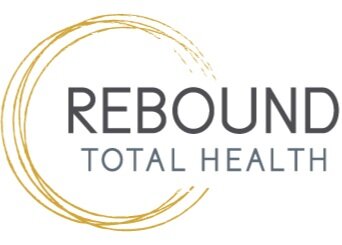Should we start couples counselling?
So, you’ve googled ‘couples counselling’ and ended up here. You’ve searched the vast sea of the internet in an attempt for answers and have ended up feeling more confused than ever. Rough patches happen in every relationship, but how do we know it might be time for couples counselling?
Potential signs that couples counselling may be for you:
You feel stuck and are unsure how to move forward together
One or both of you feel disconnected
You or your partner are consistently fighting
You and your partner can’t seem to resolve conflicts
There has been a betrayal of trust
You and your partner want to grow together
You are both considering a big change and/or step in the future (marriage, adoption, children, careers, moving, etc.)
What can I expect from couples counselling?
If you’ve ever done individual therapy, couples counselling shares many similar components. You meet in person, virtually, or by phone together with your counsellor. You can use a consultation to discuss your fee, your therapists’ experiences and qualifications, and what you want to work on together. You’ll talk about struggles, successes, and strategies. The main difference? Your relationship is ‘the client’. This external focus prevents taking sides or playing the blame game.
What if my partner doesn’t want to go to therapy?
A key component of couples counselling is the consent of both partners. No one can force you to engage in counselling if you don’t want to. However, it is possible that having never tried counselling or having a bad experience has swayed your partner from attempting couples counselling. Continue to practice patience and provide them with any information they may need. Individual counselling may be an opportunity to discuss your own needs, wants, and desires from your relationship in a safe and confidential way.
How do I find the right couples counsellor for us?
Finding the right therapist can often feel like online dating. In a world of options, how do you know which one is for you? Databases like Psychology Today or Affordable Therapy Network can be a great starting point to find therapists in your location, targeting a specific issue, or with a particular training. As you go through each profile, you’ll notice they each have certifications or trainings. Just as each person is different, each therapist is different too! Therapists have different lived experiences and trainings that make each one unique. If you’ve tried counselling before, you may have some ideas about what works well for you or your partner.
Some popular types of counselling include:
The Gottman Method – Created by Dr. Gottman, therapists focus on empathy and work to improve overall communication and intimacy. This style of counselling encourages work from the couple outside of therapy sessions.
Emotionally Focused Couples Therapy (EFT) – This style of counselling was designed to be more short-term in nature. It focuses on facilitating a safe and secure attachment with your partner by understanding the importance of emotions and the role they play in the relationship.
Narrative Therapy – This therapy framework focuses on stories and the collective narrative of the couple. A narrative therapist sees problems as problems, not as a part of an individual or couple’s identity.
Solution-Focused Therapy – SFBT is best for couples looking to solve a particular issue or problem, often in a more condensed period of time. This type of counselling is goal oriented and focuses on potential solutions together as a couple.
What are the benefits of couples counselling?
The benefits of counselling depend on you as the couple and what you want help with. Likewise, you get out of it what you put into it. You could gain a deeper understanding of your partner, work through a difficult conflict, learn communication or coping skills, restore trust in each other, improve your sex life, or improve your intimacy. Couples counselling is hard work, but the benefits could be life changing.
Think couples counselling might be for you? Reach out today!
